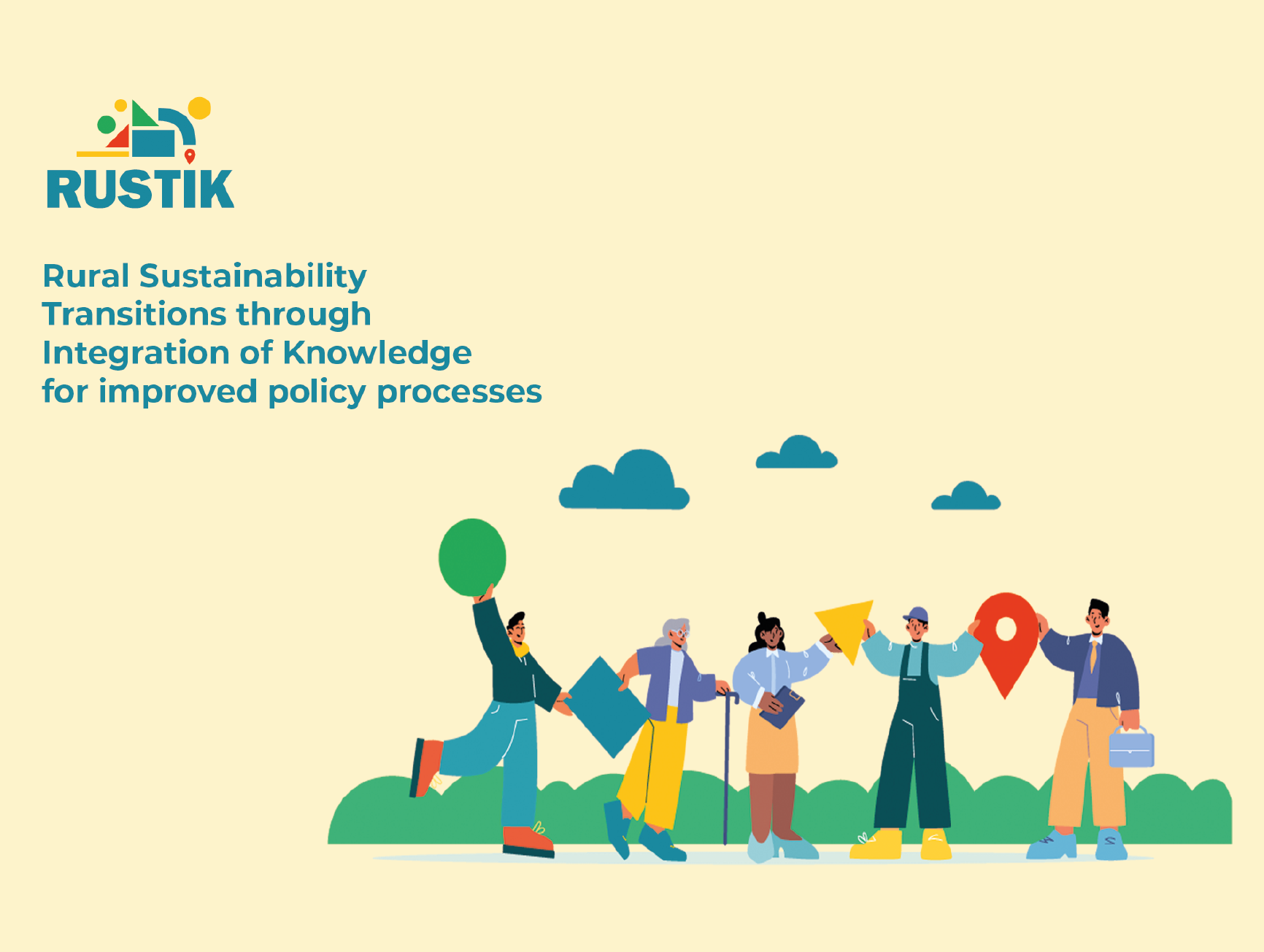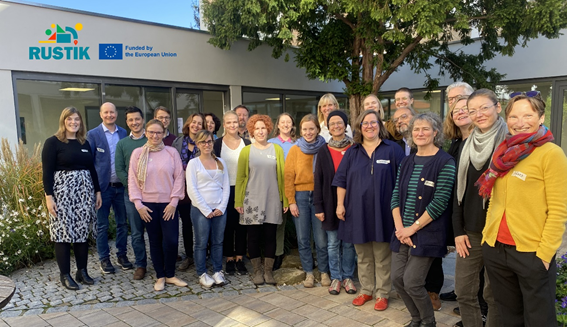RUSTIK runs 14 Living Labs to foster sustainability transitions in rural communities
RUSTIK (Rural Sustainability Transitions through Integration of Knowledge for improved policy processes) is a four-year transdisciplinary research project. The project aims to enable rural communities’ actors and policymakers to design better strategies, initiatives and policies fostering sustainability transitions of rural areas.
The project, funded by the Horizon Europe programme, envisages an analysis of current adaption requirements and the support of effective rural policy-making processes for a better understanding of the different rural functionalities and characteristics as well as the potentials and challenges of rural areas. Environment, climate-energy, socio-economic and digital will be the key transition pathways studied in the project.
Living Labs in 14 European Pilot Regions in 10 European countries will be the central element to generate new insights into rural diversity and societal transformations. RUSTIK’s Living Labs will work on the identification of new data, methods of data collection, combined with current data sources to set up relevant indicators. The project will also focus on data integration and dissemination, to make information and analysis accessible and valuable for actors and policymakers; and to improve rural impact assessment. The final goal is to enhance policy strategies and governance structures. To do so, 3 sequential phases: situational review, data experimentation, and policy learning are envisaged.
A multidisciplinary consortium
The consortium involves 30 partner organisations. Eight universities and four research institutes are providing scientific expertise within the fields of rural development, spatial planning and reporting, policy process, climate change and sustainability; two knowledge-based SMEs contribute to this with ready-to-apply technologies and approaches; and two NGOs act as intermediaries between university resp.
Local and regional embedded partners ensure a practice-oriented implementation of the project. This comprises partners from five local or regional public administration, two local action groups (LAGs), three business associations and three regional development agencies.
Two European umbrella organisation representing rural mountainous stakeholders and regions, Euromontana, and the European LEADER association for rural development, ELARD, are key multipliers towards other European regions and particularly support the dissemination towards the European Union.
The consortium efforts will contribute to enhancing existing European policy tools and approaches, most of all to support the European Green Deal, the European Digital Strategy, the European Pillar of Social Rights and the EU Long-Term Vision for Rural Areas of the European Union, the EU Cohesion policy, the common agricultural policy, and, in particular, the European agricultural guarantee fund (EAGF).
Ersilia’s role:
Ersilia coordinates a Living Lab in Osona, Catalonia (Spain), facilitating the rethinking of territorial and urban planning aligned with environmental, socio-economic, and digital transitions. The goal is to promote rational land use, protect the environment, and achieve sustainable development.
Keep updated at: https://rustik-he.eu/


